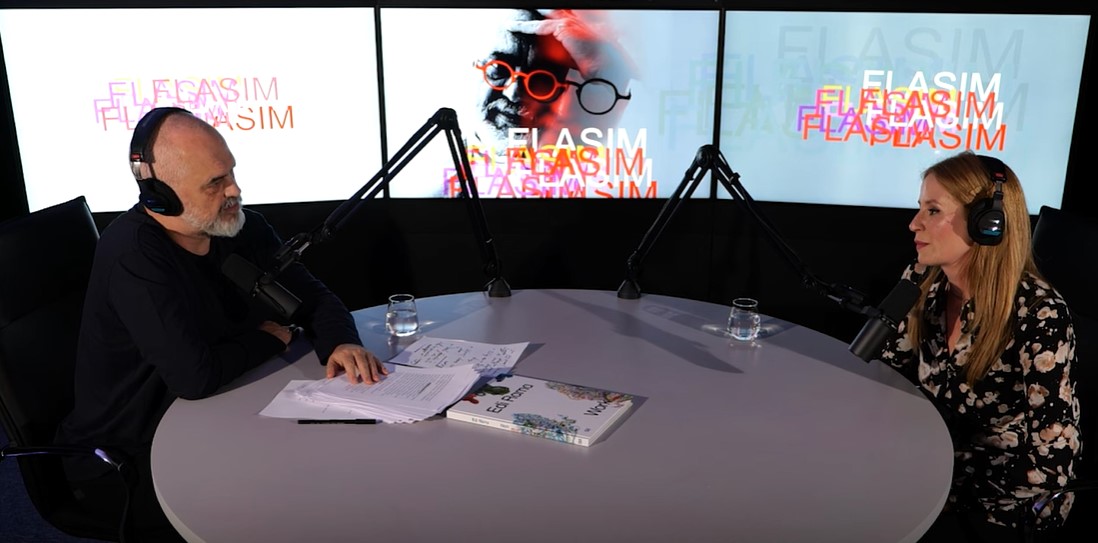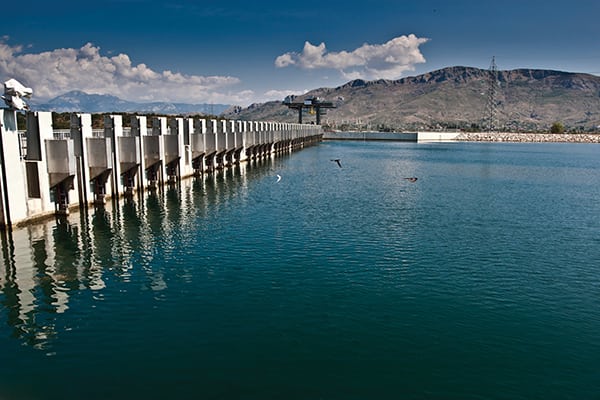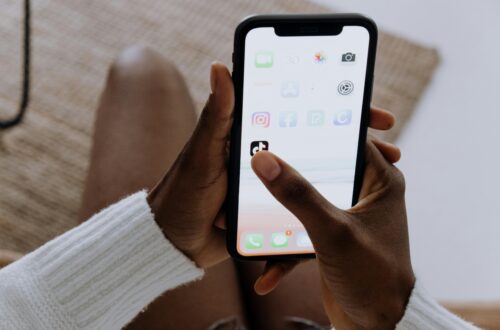On Saturday, a recorded interview was published between myself and Prime Minister Edi Rama. Rather than me interviewing him, I was the subject- something rather unusual for a sitting prime minister to do, but we are in Albania, where anything and everything is possible.
The response was overwhelmingly positive. Those that support him, oppose him or simply don’t care all messaged to congratulate me. Of course, amongst those that understood my reason for accepting the interview, a handful of voices were critical, and I am sure others think that perhaps I have ‘switched sides’ or ended up on the alleged payroll of the government.
In 2019, amid a high-risk pregnancy, I was attacked by my pro-government media and called a Russian spy and agent. A few days after these lies were published everywhere, my residence permit was revoked and no reason was given. Over the following weeks, I dealt with more and more articles, popping up like weeds, ministers going on television saying I was a threat to security, the police leaking my private data to the media who published it, being shouted at in the street, and harassed online to the point I had to close almost all of my accounts.
In response to the attacks, I sued (and won) all the media that refused to take down the defamatory articles. I also took the police and Ministry of Interior to court for my permit and won that. I made a television appearance where I ridiculed the entire situation, and eventually, things died down. But it was not without its consequences. Being heavily pregnant at the time, the stress greatly impacted me. I collapsed in the street, was taken to hospital and nearly lost my daughter. My heart rate and blood pressure were so high that the hospital was preparing to transfer me to the state hospital and deliver my daughter at six months, or else we would likely both die. Thankfully, at the very last moment, I responded to treatment and our lives were saved. But I will never forget what happened ad how close we both came to a terrible end.
Understandably, people now ask, “how could she meet Rama after what happened?” The answer is simple. I found recourse through the courts and legal system, I dealt with much of the trauma, and when people still sometimes make comments in public, I can usually suck it up and get on with my day. But I have never been able to communicate the consequences of what happened to a higher level.
I don’t know who gave the order for what happened to me, but to be able to explain the true gravity of what happened and that two people nearly died was of huge importance. After expressing this, I felt a weight had been lifted from me. Of course, I will never forgive or forget what happened, and even writing about it here gives me anxiety, but sitting at that table was a hugely personal and critical moment for me.
As for my professional reasons for accepting, they are quite simple. I have written more about Albania in the English language than probably anyone else in the country’s history. To date, I have authored over 5000 articles, created podcasts and videos, and posted 20,000 plus photos. I have praised, raised awareness, and criticised without fear or favour. I have also been one of the most vocal critics of Edi Rama, writing several opeds where I have expressed my frustration and anger over his decisions, words and actions. I have also congratulated him on several instances where I agreed with him.
For many years, I have been accused of being paid by the opposition precisely because I wrote articles critical of the government. This is not true, and I have written with criticism because I am passionate about my home, about social justice, and I cannot bear to see inequality. I am not motivated by politics or money- I am inspired simply by what I think is right.
When I was asked to take part in the interview, it was accompanied by a request to send all the critical articles I had written. As a journalist, having the chance to defend your critics face to face with the subject and allow them a right of reply is a golden opportunity. It is an ethical requirement to allow the subject a public right reply, and I would challenge any real journalist to honestly refuse such a chance.
I would have denied the right to reply if I had said no. I would have also denied myself the unique opportunity to defend my words. But more than anything, I would have looked weak. By refusing, I would send the message that I could not protect myself, that what I had written was empty, and that I was afraid to reiterate our stand up for what I believe in.
This is something I could not accept. It was vital that I could send the critical things I had written and have the chance to address any of them face to face with the prime minister.
These were my main reasons for accepting the invitation; a deeply personal one and another based on media ethics and best practices, and a desire to not appear weak.
I am politically neutral and do not favour one party over the other. My decision to sit with Rama does not mean I am now aligned with his party, as I would happily do the same with anyone else that asked. It is my neutrality that led to my decision to do the interview. I am not interested in money or power but rather in the truth. Me sitting there and not backing down reinforces every word I have ever written rather than signalling any kind of backtracking. It shows that I meant them, that I do not go back on them and that I do not fear defending them even at the highest level.
The sour grapes mainly come from those who tried to use me politically over the years. They touted me as an independent, ethical journalist when it suited their agenda- i.e. when I criticised the government. But now, when I engage in a discussion with their opposition, I am suddenly a traitor. Of course, this is to be expected here, where the concept of free will, independence, or not being motivated by politics or money is hard to grasp for many.
Do I think the prime minister used the interview for propaganda? Of course. Everything every politician does is for propaganda, but let us not forget he is not the only politician in Albania with a podcast.
Secondly, when I took the decision, I weighed up the potential pros and cons. To me, the personal and professional reasons I identified were of far more significance than anything negative such as hate mail, being used for propaganda or any damage to my reputation.
The benefit of that interview to me, in terms of finding some peace and being able to fight my corner far outweigh anything else; for that reason, I am entirely comfortable with what I did.
My editorial line has always been to criticise the bad, praise the good, and use facts- I have not strayed from that path. There is a significant lack of intelligence here regarding how public people conduct themselves. There is no understanding that it is possible to sit down with someone you disagree with to discuss like adults. There is no understanding that showing an interview with someone doesn’t mean you are politically aligned with them. There is no awareness beyond polarised and indoctrinated political affiliations, so much so that many are so blinded they cannot see the bigger picture.
The longer I stay here, the more I understand how unhealthy this situation is and how much it harms society.
You may say I am not unbiased or independent, but doing what I did shows I am more of both than many others. You cannot just attack, attack, attack and then refuse to confront it because if you do, it suggests you are disingenuous in your intentions.
This is a country where politicians don’t publicly face each other in debates and where media and analysts act like attack dogs. What I did is an alien concept to many because they are simply not used to the idea that you can engage with those you disagree with and that debate is part of a healthy and pluralistic society.
Let’s be honest; those criticising me are exclusively motivated by politics and are simply sore that they cannot continue to use me for their own gain. I sleep soundly with my choices and decisions, which I am sure is more than can be said for them.
In conclusion, I have not switched sides as I was not on a side, to begin with, and I am not on any state or government payroll. As a journalist, mother, resident, blogger, public person and private person, I made a decision to engage on a number of topics which form the basis of my life work and even my entire identity.
People are welcome to disagree with my choice, and I appreciate some of the critical comments. Still, it saddens me to see that some are so motivated by hate and black-and-white political ideology. As I said in the interview, however, I am happy with my decision, and if anyone is unhappy, that is their problem, not mine.





